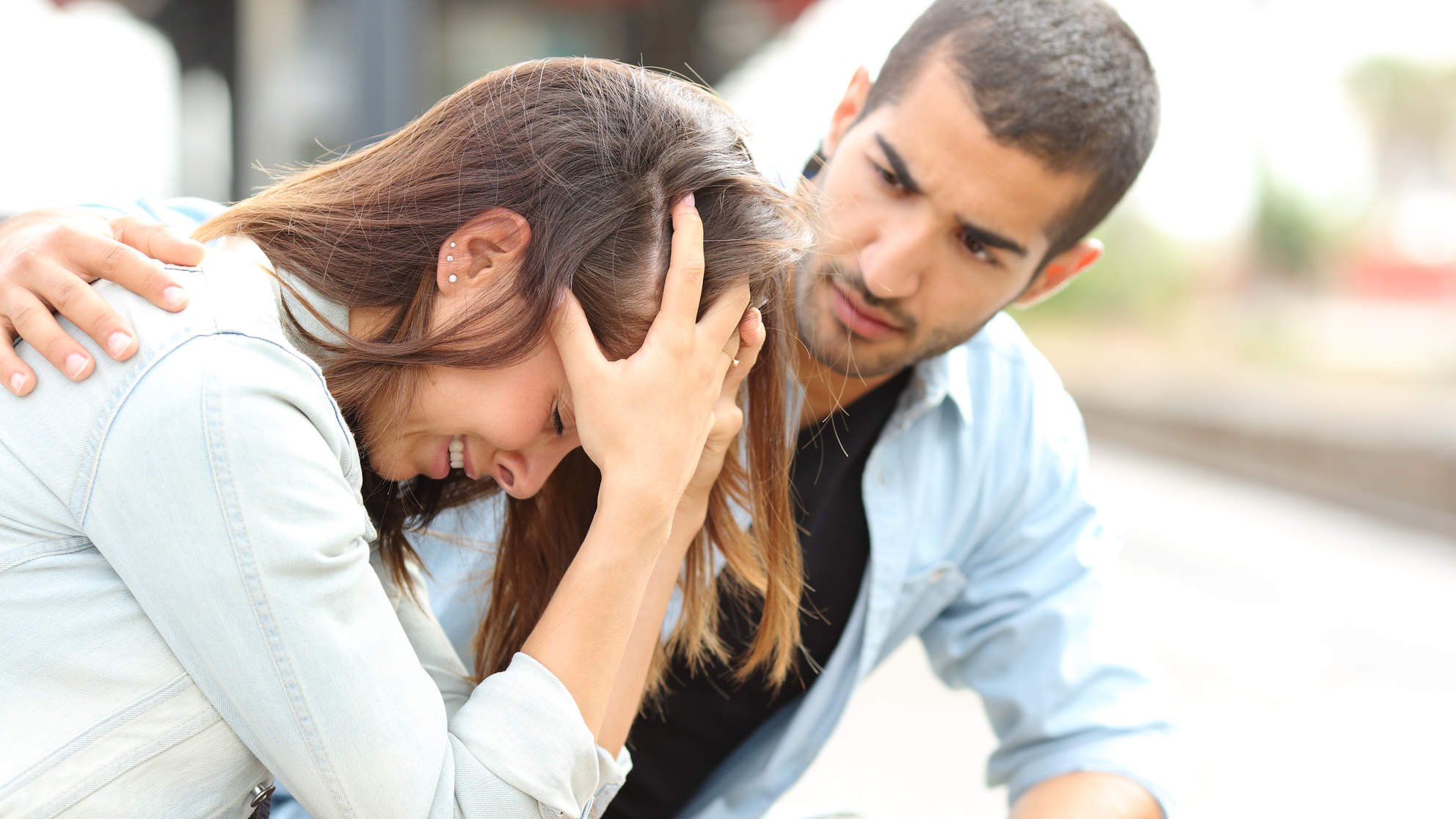NWP Blog
Panic Attacks- Top Tips And Advice
3 Aug 2018

Panic Attacks- Top Tips And Advice
What is a panic attack?
Panic attacks are a type of fear response. They're an exaggeration of your body's normal response to danger, stress or excitement. Panic disorder is an anxiety disorder where you regularly have sudden attacks of panic or fear. A panic attack is an intense wave of fear characterized by its unexpectedness and debilitating, immobilizing intensity. Panic attacks often strike out of the blue, without any warning, and sometimes with no clear trigger. You Can Read More About Panic Attacks
Panic Attacks Continued
A panic attack may be a one-time occurrence, although many people experience repeat episodes. Recurrent panic attacks are often triggered by a specific situation, such as being very stressed, very nervous, having a phobia, embarrasment, crossing a bridge or speaking in public especially if that situation has caused a panic attack before. Usually, the panic-inducing situation is one in which you feel endangered and unable to escape, triggering the body’s fight-or-flight response.



Anxiety Disorders vs Panic Attacks
The common thread between most anxiety disorders is the panic attack. However, when panic attacks are experienced out of the blue, without an apparent trigger, this is classified as panic disorder. People living with panic disorder often feel fine one minute and totally out of control and in the grips of a panic attack, the next. Panic attacks produce very real physical symptoms, from a rapid increase in heartbeat to a churning stomach sensation. These physical symptoms are naturally unpleasant and the accompanying psychological thoughts of terror can make a panic attack a very scary experience. For this reason, those experiencing panic attacks start to dread the next attack, and quickly enter into a cycle of living ‘in fear of fear’.
What are the signs of a panic attack?
- what feels like an irregular or racing heartbeat (palpitations)
- sweating
- trembling
- shortness of breath (hyperventilation)
- a choking sensation
- nausea
- dizziness/ shaking
- tingling fingers
- ringing in your ears
What are the common symptoms of a panic attack?
- Shortness of breath or hyperventilation
- Heart palpitations or racing heart
- Chest pain or discomfort
- Trembling or shaking
- Choking feeling
- Feeling unreal or detached from your surroundings
- Sweating
- Nausea or upset stomach
- Feeling dizzy, light-headed, or faint
- Numbness or tingling sensations
- Hot or cold flashes
- Fear of dying, losing control, or going crazy
What causes panic attacks
The causes of panic attacks are still not fully known. However, the physical symptoms of a panic attack are caused by your body going into "fight or flight" mode. As your body tries to take in more oxygen, your breathing quickens. Your body also releases hormones, such as adrenaline, causing your heart to beat faster and your muscles to tense up. It also can be caused by pyschological factors such as high levels of stress, high levels of anxiety, feeling scared for your life, when you are in a dangerous situation, when you are put in difficult situations, when you feel embarrassment, or sometimes a panic attack can just occur for no apparent reason. Other causes can include
- Family history
- Stressful events, such as the death of a loved one
- Substance abuse
- Problems with the brain or nervous system
How can you deal with panic attacks?
To ease a panic attack, or to prevent one from becoming worse, breathe as slowly and as deeply as you can. Really focus on your breathing. Learning and using relaxation techniques may help. Many people find that deep-breathing exercises are useful. This means taking a long, slow breath in, and very slowly breathing out. If you do this a few times, and concentrate fully on breathing, you may find it quite relaxing. Some people find that moving from chest breathing to tummy (abdominal) breathing can be helpful. Sitting quietly, try putting one hand on your chest and the other on your tummy. You should aim to breathe quietly by moving your tummy with your chest moving very little. This encourages the lower chest muscle (diaphragm) to work efficiently and may help you avoid over-breathing.


How to help someone having a panic attack
Stay calm: Don’t let the situation overrun you. Your low-key behavior can be a model for your friend and let them know everything's OK.
Stick around: The best thing you can do to help with a panic attack is to stay and help your friend ride it out. Most panic attacks ease up in 20 to 30 minutes.
Do your best to be understanding, positive, and encouraging. Ask what the cause of your friend's panic is. That can let them take a step back and think about the situation more rationally.
You could ask:
- How many times have you gone through this?
- What did you think was going to happen?
- What actually happened?
Questions like this will let friends or loved ones see for themselves their worst fears won't happen. It can also remind them of times they’ve come through panic attacks. Helping someone get through one of these will be a learning experience for them. Riding out a panic attack can make the next one less traumatic. It may even make it less likely to happen at all.
How to gain control over panic attacks
- Breathing slowly and deeply. Anxiety can cause you to breathe very quickly, which makes both the mental and physical symptoms of a panic attack even worse. When you start to feel panicky, be sure to take slow, deep breaths to soothe your mind and body.
- Stop and think. When your thoughts start spinning out of control, simply tell yourself to stop. Organize your thoughts and decide what you need to do to get yourself calm again.
- Think positively. Push negative thoughts out of your mind, and remind yourself that you are in control. Think about times when you've been able to manage situations successfully and reduce anxiety.
- Stand up for yourself. If you need to leave a situation, do so or tell someone you need to leave. Don't be afraid to ask for help. Allowing yourself to become more upset will not help if what you really need is to take a walk and blow off some steam.
- Relax your muscles. Anxiety causes your entire body to tense up, so make a conscious effort to relax each muscle from your toes all the way up to your neck and face.
When to seek medical advice for panic attacks
A panic attack can make you feel like you’re about to collapse or even die, but it's usually harmless. However, in some cases, you may need medical advice to rule out an underlying physical cause.
Get medical advice if:
- Your panic attack continues after doing 20 minutes of slow breathing.
- You still feel unwell after your breathing returns to normal.
- You still have a rapid or irregular heartbeat or chest pains after your panic attack.
- You regularly have panic attacks, as this could be a sign that you have panic disorder.
Encourage to seek medical help
- Help them find a licensed professional.
- Search reputable online spots that offer support.
- Recommend some self-help books.
If the panic attacks have a big impact on your friend's or family members work or home life, it’s especially important that they get help from a trained professional. Panic disorder is one of the most treatable mental health issues.
Panic Attack Prevention Tips
"You need to try to work out what particular stress you might be under that could make your symptoms worse,"
- Doing breathing exercises every day will help to prevent panic attacks and relieve them when they are happening.
- Regular exercise, especially aerobic exercise, will help you to manage stress levels, release tension, improve your mood and boost confidence.
- Eat regular meals to stabilise your blood sugar levels.
- Avoid caffeine, alcohol and smoking – these can make panic attacks worse.
- Panic support groups like No Panic have useful advice about how you can effectively manage your attacks. Knowing that other people are experiencing the same feelings can be reassuring.
- Cognitive behavioural therapy (CBT) can identify and change the negative thought patterns that are feeding your panic attacks. This teaches different ways of thinking, so the response to the fearful situation will change.
- Exposure Therapy: This allows you to relieve or confort what makes you panic in a controlled environment and learn slowly how to deal with those feelings.
Support For Panic Disorders
https://www.nhs.uk/conditions/generalised-anxiety-disorder/
https://www.nhs.uk/conditions/stress-anxiety-depression/coping-with-panic-attacks/
https://www.rcpsych.ac.uk/expertadvice.aspx
https://www.rcpsych.ac.uk/healthadvice/problemsdisorders/anxiety,panic,phobias.aspx
Mind Charity Helpline: 020 8519 2122
MindInfoline: 0300 123 3393
Anxiety UK Helpline: 08444 775 774
Anxiety Alliance Helpline: 0845 296 7877 (10-10 daily)
No Panic Helpline: 0844 967 4848




 TRUST
TRUST
Post Comments